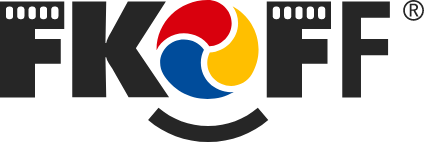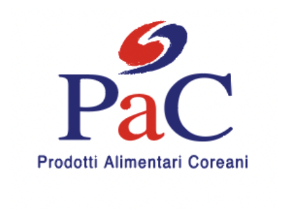Guests Archive / AHN SUNG-KI
AHN SUNG-KI
Name in korean:
안성기
Name pronunciation:
An Song Chi
Profession:
Actor
Date of Birth:
01 Gennaio 1952
Gender:
Man
Biography
Ahn Sung-ki was born on January 1, 1952 in Daegu, South Korea. He began his career at the age of 5 in Kim Ki-young's "The Twilight Train", which also offered him a small role in the famous "The Housemaid" (1960). For about ten years he did not act in any other films, graduating from Hankuk University of Foreign Studies. At the end of the Seventies he returned to the cinema, never abandoning it and participating, to date, in more than a hundred films. On June 23, 2012, along with Lee Byung Hun, he was the first Korean actor to leave his footprints in Hollywood, in front of Grauman's Chinese Theater. He was recently appointed as a representative of UNICEF. Ahn Sung-ki's long and glorious career mirrors the successes of half a century of Korean cinema. And since Ahn has participated (as a protagonist, but not only) in a large number of Korean films among the most universally appreciated both at home and abroad, the national press has renamed him as "the Korean actor" par excellence. Thanks to his unmistakable style, his ability to play complex roles and to play a wide variety of characters, Ahn has won the respect and admiration not only of the public, but also of the critics. After winning the award for Best Child Actor for "Defiance of a Teenager" at the 1960 San Francisco Film Festival (it was his third film for Kim Ki-young), Ahn was able to put this early experience to good use and transform himself into an adult actor with proven professionalism. During a career spanning more than sixty years, he has survived all the crucial moments in the history of Korean cinema from the post-war period to the present day: he has collaborated intensively with a revered auteur such as Im Kwon-taek on classics such as "Mandala", "Festival", "The Taebaek Mountains" and "Chihwaseon". At the same time, he has participated in some of the greatest successes (including commercial) of Korean cinema: "Whale Hunting", "Deep Blue Night" and "Our Sweet Days of Youth" by Bae Chang-ho; "Spring in My Hometown" by Lee Kwang-mo; "White Badge" and "North Korea's Southern Army" (for which he won the Blue Dragon Award for Best Actor in 1990) by Jung Ji-young; "Two Cops" by Kang Woo-suk; Park Kwang-so's "Chilsu and Mansu" and "To the Starry Island"; "Nowhere to Hide" by Lee Myung-Se. Having won so many awards at domestic and Asian festivals (including many Baeksang Art Awards, most recently in 2012 for "Unbowed"), in 1997 Ahn was anointed as the best actor by "Cine21", the most important Korean film magazine today. In addition to being an internationally renowned actor, Ahn has become a true national icon. For example, he is ubiquitous in the advertising industry, where he often plays the role of a reliable father. The Korean imagination seems to have entrusted him with the representation of the "human" face of power. This explains why he has played the role of President of the Republic twice, in "The Romantic President" and "Hanbado". This year's Florence Korea Film Festival is his first European retrospective. Marco Luceri
Critique
THE HUNDRED FACES OF KOREAN CINEMA There is perhaps no more famous actor in South Korea than Ahn Sung-ki. We are talking about a true national icon, with more than a hundred films to his credit, enough to make him a living legend, as well as a unique witness to the history of Korean cinema from the post-war period to today. Those who think that we are talking about an elderly man, however, will have to change their minds because this "patron" has actually just passed sixty years of age. Yet his first cameo dates back to 1957, when at the age of five Ahn walked the scenes of a film by Kim Ki-young, The Twilight Train, a director who then wanted him back with him just a few years later for the famous The Housemaid (1960). It is not a mere biographical detail because Ahn's strength, from his unmistakable style to his star image, lies precisely in having gone through all the changes and revolutions experienced by Korean cinema in recent decades unscathed: from enfant prodige to mature face, in dramatic or comic-grotesque roles, at the service of great auteurs as well as more blatantly commercial films, Ahn has never shied away from a way of perceiving his work as a sort of "mission" in his tumultuous present. Acting soon became for him not only a job, but a way of embodying a certain idea of cinema as the glue of society, useful sometimes to normalize and sometimes to explode the thousand contradictions of a country constantly divided between tradition and modernity. The films in this year's Florence Korea Film Fest retrospective are a good starting point for exploring the figure of Ahn, who, unlike some of his colleagues (such as Song Kang-ho or Choi Min-sik, who have already been guests in Florence in past editions), is not well known by Western audiences, probably because none of the directors of the Korean New Wave that exploded at the end of the Nineties (Kim Ki-duk, Park Chan-wook, Bong Joon-ho, etc.) wanted or could work with him. It's a pity, because if there is a Korean actor capable of combining experience and intuition, as well as having an extraordinary ability to immerse himself in the most diverse characters, going beyond genres, it is Ahn. While waiting for a story yet to be written (it is a wish for ours), it is from the doyen of Korean cinema, the revered Im Kwon-taek, and from the films that Ahn has made with him, that we should start to make a brief analysis of the actor's style. The retrospective features two of the seven films that Ahn made together with Im, Festival and Revivre, arthouse films in which the actor finds himself in the shoes of two very different characters. In the first film he plays the part of a successful writer struggling with a sort of "settling of scores" within his family, while in the second he is a husband who lives next door to his seriously ill wife, but ends up falling in love with a woman much younger than him. Despite the diversity of roles and dramatic situations, Ahn's acting follows some constants, the first of which is the extraordinary ability to model his work to the images constructed by Im, who works a lot on the subjectivity of the shots, with the camera being on the actors, but in a discreet and very elegant way. Ahn lives this intimate relationship between actor and camera through a measured physical feeling of the body, so that every gesture, every action, every look, turns out to be the result of an internal (therefore emotional) input that is revealed in a movement of the body. Ahn thus manages to convey to the viewer the complexity of his character (an essential condition when dealing with films of this kind, especially those directed by Im), while simultaneously managing multiple emotional levels. It is for this reason that in the Festival, but perhaps more accentuated in Revivre, we can speak of a very strong interpretative realism, masterfully rendered also by a careful use of make-up and costumes, which serve, in these specific cases, as an "external" support to the success of the interpretation. Outside of Im's cinema, these constants – which actually reveal a very specific method – can also be seen in another film in the retrospective, the splendid Our Jyful Young Days, an intense melodrama in which Ahn plays the role of a man who lives a long love story marked by the dilation of time and space. A film entirely played on desire and waiting, feelings that the Korean actor fully captures in their transformation, relying again on an inner dimension that this time pushes him to hold back the movements of the body as much as possible, but precisely for this reason giving each of them an unusual scope. It is an interesting variation on his own style as an actor, which in the now mature phase of his career, Ahn tries to push more and more towards an expressive dimension that is, so to speak, universal. It is also in this film that we perceive another virtue of the Korean actor, that of knowing how to interact perfectly with the other performers, especially with the deuteragonists (especially women), without ever going beyond what are other people's spaces, but putting himself at the service of a "common" idea of presence on the scene. If in these three films the actor is grappling with feelings, in the two titles that can be traced back to the genre of the war film, White Badge and Nambugun he finds himself in a completely different context. These are two strongly anti-rhetorical films, in which the war experience is the cause of a deep sense of bewilderment and anguish. In the absence of points of reference, the war hero classically understood gives way to human figures who experience the cruel chaos of the world on their own skin. Ahn manages to give the protagonists of these two films a tragic and alienating dimension at the same time, focusing everything on feverish acting, in which emotional states and bodily gestures are placed in a continuum that explodes through a very strong expressive charge. We are very far from the restrained acting used by the actor in Im Kwon-taek's films or in Our Jyful Young Days: here it is rather a matter of plastically rendering all the sense of madness and alienation that assails the characters in the face of war, thus helping to give the film a very precise frame. It is clear that Ahn's work here is no longer one of subtraction; On the contrary, the need is precisely to charge the style, to arrive at the representation – once again – of men who live universal feelings. It would be enough to point out these differences to understand how Ahn is an actor capable of using different acting methods (from identification to imitation), adapting them to different contexts and films, to achieve a single very specific result: to make his character unique. In this sense, it is even more interesting to observe how the actor moves on the terrain of comedy, as Radio Star and Gagman are. In the first film, Ahn plays a rather unusual role for him (he's the manager of a capricious rock star), while in the second, he plays an actor who makes a living doing Charlot's pantomime in third-rate cabaret. If in Radio Star Ahn "limits" himself to guiding the young actor who shares a large part of the film with him (confirming his ability to know how to work in perfect synergy with any type of performer), it is in the meta-cinematographic Gagman – a film with an openly parodic style – that the actor gives the best of himself, opting for a comic-grotesque register aimed at hiding his face behind the mask. It is a work on one's own being an actor conducted through an openly anti-mimetic acting technique (and how could it be the other way around?). The goal is that of the caricatured and grotesque deformation of the type (the unlucky actor who dreams of making a film and improvises as a gangster to scrape together the money) that Ahn plays. And she does so by articulating her body and voice in deliberately forced positions, making continuous use of props, emphasizing repeated actions and making the most of the expressive potential of the costumes and accessories she wears. This technique greatly enriches a character who would otherwise be not very credible, and who, instead, in Ahn's interpretation becomes almost a funny ghost (that of Charlot himself?), a trace of a cinematic mythopoeia that no longer exists (hence the nostalgia effect that the film provokes). This extraordinary versatility in the use of different registers has allowed Ahn to build a style that is perfectly adaptable to any film, genre and context he faces. It is his strength, that of being able to play the shoes of anyone, as only great actors can do and this has contributed with the passage of time not to eclipse his lucky star, because the tumultuous growth of Korean cinema in recent years (both on an industrial level and on an aesthetic level) has forced all actors and actresses to rethink their role and put themselves at the service of a cinema with increasingly hybridized shapes. However, without their contribution, a good part of the success of Korean cinema in the world today with audiences and critics would probably not have been possible. For his part, Ahn has done nothing but do what he has always done, looking everywhere, without any prejudice, accepting different roles and dealing with a truly impressive multiplicity of directors. It is very likely that now more than ever he is in the ideal position for an actor-star like him, so much so that his image, now gloriously reassuring, as a "patron" precisely, allows him to be "the" face of a national cinema that knows how to keep tradition and modernity together. A sort of ideal mirror reflection, for a society that instead always lives this relationship in a problematic way. Marco Luceri
Filmography
- 2022 - HANSAN: RISING DRAGON REDUX
- 2018 - HUMAN, SPACE, TIME AND HUMAN
- 2014 - REVIVRE
- 2011 - UNBOWED
- 2007 - M
- 2006 - RADIO STAR
- 2005 - DUELIST
- 2003 - ARAHAN
- 2003 - SILMIDO
- 1999 - NOWHERE TO HIDE
- 1996 - FESTIVAL
- 1994 - TAEBAEK MOUNTAINS
- 1992 - WHITE BADGE
- 1990 - NORTH KOREAN PARTISAN IN SOUTH KOREA
- 1988 - GAGMAN
- 1987 - OUR JOYFUL YOUNG DAYS
- 1984 - BETWEEN THE KNEES
- 1981 - MANDALA




